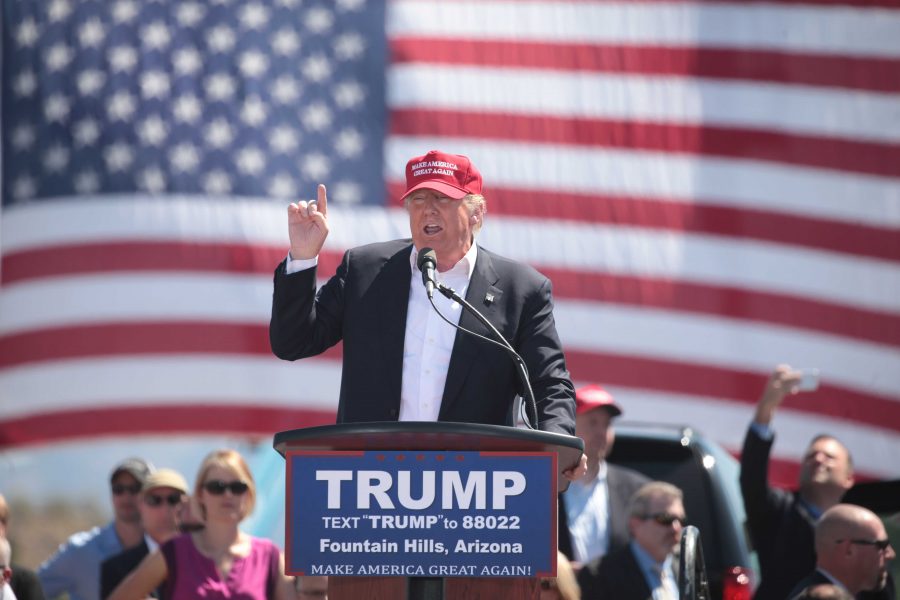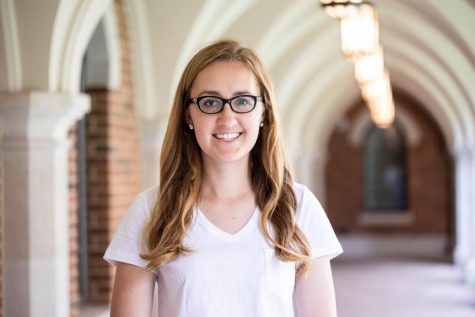Hundreds of students met in front of Central Library on Nov. 10 to protest the election of Donald Trump as president. Similar demonstrations have occurred on college campuses across the country. The Hustler talked with several professors from the Department of Political Science to discuss student reactions to the election and how a Trump presidency will affect students.
Demonstrations and Protests
When asked what they thought about student reactions on campus to the election results, Vanderbilt political science professors recognized the importance of having students’ voices heard. Additionally, they encouraged students to participate in the political process through other methods.
“I believe in First Amendment rights. If people are upset, they should protest. They should not only protest, but then organize and vote. We know the youth of this country — it’s always been true — don’t vote at a very high rate,” said Vice Provost of Academic and Strategic Affairs and Professor of Political Science John Geer.
Assistant Professor Sharece Thrower encourages students to continue making their voices heard, and she notes that the university is listening to students’ opinions.
“I think it’s important for students to have their concerns and their voices heard, as long as it’s constructive, and they’re very clear about what outcomes that they want from the administration,” said Thrower. “And I can tell you so far that… at least among the faculty and administration that this has let us know what’s important to the students, and already we’re talking about ways to move forward.”
Professor David Lewis said that it is crucial for a democracy to respect election results while protecting the right to protest. Professor Bruce Oppenheimer stresses that students should view the election results with perspective, with many voting for the first time.
“Students haven’t experienced that many elections, so the tendency is to be more moved either positively or negatively by the result,” said Oppenheimer.
Immigration
President-elect Trump’s immigration policy proposals have been a topic of concern for some Vanderbilt students. On Nov. 16, a group of students presented Chancellor Zeppos with a list of demands, among them for Vanderbilt to be deemed a “sanctuary campus.” The designation would mean that Vanderbilt students who are not US citizens would be protected from Trump’s proposed immigration policies.
Vanderbilt professors said that changes in immigration policy could affect Vanderbilt students. Professor Oppenheimer said that recruitment of international graduate student and faculty could be impacted, and Professor David Lewis noted possible effects on international students.
“Vanderbilt students could experience changes most directly in the immigration difficulties of students, both documented and not,” said Lewis.
Impact on social issues
The professors also addressed the social issues that were salient throughout the campaign, including some that have been of particular interest to students at Vanderbilt. Geer said that Supreme Court cases pertaining to social issues such as abortion and marriage equality are unlikely to be overturned. Thrower stressed that the power of the executive is limited.
“The government is more than just one person, it’s more than just one branch of government,” Thrower said. “President-elect Trump is not going to be able to implement every policy that he wants to. I’m confident that we’re going to have a checking of presidential power.”
Thrower also noted the importance of fostering an inclusive campus environment.
“It’s important as a university to take these concerns seriously, particularly when they involve the inclusiveness of our student body and the safety of our student body,” she said. “That should be of utmost importance.”
Lewis encourages students to make their voices heard.
The government is more than just one person, it’s more than just one branch of government
“Students who are worried about discriminatory policies should continue to stand up and speak out, not only when the policies affect them personally but when they affect others.”
Higher education
How will Trump’s policies affect colleges and universities? Vanderbilt’s political science professors noted that research is the area most likely to be impacted. However, how university research might change is unclear at the current moment.
“You could imagine him wanting to dismantle some of the support for higher ed, but maybe what he’d do is end up increasing Pell Grants. Maybe he’d end up lessening regulations on universities that would help them do their job at a more efficient cost,” said Geer.
Remaining politically active
When asked what steps students should take next, each professor encouraged students to continue speaking up and staying involved in the political process.
So many people often treat the election like the end of the political process when it’s the start of the political process
“We just need people to say their pieces,” Geer said. “Democracy isn’t always fun, but it requires engagement.”
Thrower recommends that students write to their members of Congress, because government representatives have incentives to listen to their constituents in order to be re-elected. Oppenheimer encourages students to continue being involved.
“The important thing is not to go back into the woodwork,” Oppenheimer said. “So many people often treat the election like the end of the political process when it’s the start of the political process.”



